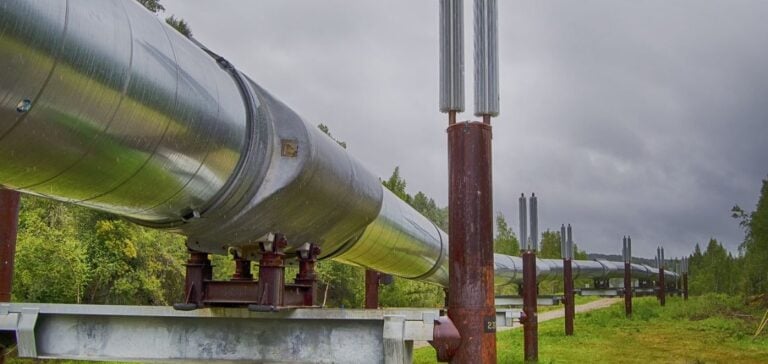The European Commission has announced that there is no immediate threat to oil supplies to Hungary and Slovakia, despite recent Ukrainian sanctions against Russian producer Lukoil.
According to Valdis Dombrovskis, European Commission Vice-President for Trade, the sanctions do not affect the transit of oil via Ukraine.
Information provided by MOL Magyar Olaj es Gazipari Nyrt indicates that oil is becoming the property of trading companies on the Russian-Ukrainian border, thus escaping sanctions.
Context of Sanctions and Impact on Supply
Ukrainian sanctions against Lukoil came into force at the end of June.
However, complaints about supply problems only emerged in mid-July.
Hungary and Slovakia, concerned about the impact of these sanctions on their ability to purchase Russian oil, had expressed concerns about the security of their supplies.
The European Commission, in a letter to foreign ministers, states that there is no need for urgent consultation, as it has not detected any immediate threat to supplies.
Operation of the Druzhba Pipeline and Diversification of Sources
The Druzhba pipeline, linking Russia to Eastern Europe, continues to operate despite the conflict that has been underway for over two years.
Its southern branch, passing through Ukraine, the Czech Republic, Slovakia and Hungary, remains a key source of supply for refineries in these countries.
Rosneft PAO, Lukoil PAO and Tatneft PAO are the main exporters via this pipeline.
In response to EU governments’ concerns about continued dependence on Russian oil, the Commission notes that the JANAF Adriatic pipeline offers surplus capacity to transport oil from other sources.
Reflections on Diversification and Next Steps
The European Commission recommends greater diversification of hydrocarbon supply sources.
Two years after Russia’s invasion of Ukraine, Hungary’s and Slovakia’s dependence on Russian oil remains a major issue.
The Commission stresses the importance of diversifying sources to ensure long-term energy security.
Next steps include exploring new sources to reduce dependence on Russian hydrocarbons.






















